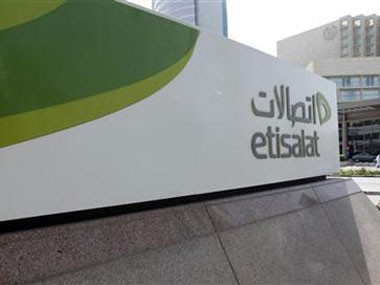Egypt retreated again in the 2013-2014 Global Competitiveness Index (GCI), issued by the World Economic Forum (WEF), to fall to the 118th position out of 148 countries, from the 107th place in 2012-2013 out of 144 countries, keeping it in the bottom part of the report.
The GCI, which evaluates how countries fare on competiveness, based on their performance in three pillars, has indicated a decline in Egypt’s rank since the year 2009-2010, when it fell to the 70th slot out of 133 countries included that year, to the 81st place among 139 countries the year after, and 94th of the 142, according to the report issued in the fiscal year 2011-2012. The three pillars include basic requirements, efficiency enhancers and innovation and sophistication factors.
Deterioration in this year’s rank is largely attributed to the pillars of basic requirements and efficiency enhancers, the report showed. A weakened institutional environment, lower quality of infrastructure, and the macroeconomic environment led to the decline in the basic requirements scale. While health indicators have displayed improvement, primary education slipped in quality, the report showed.
Efficiency enhancers owe their deterioration to the poor performance in higher education and training, the efficiency of the goods, labour and financial markets, as well as the level of technological readiness.
According to the report, the weakened institutional environment was evident in the need for greater protection of property rights and of intellectual property, high incidences of bribes and irregular payments, weakened judicial independence, a wasteful pattern of government spending, as well as a relatively inefficient legal framework for settling disputes. Moreover, this year’s results show an increased business cost associated with both ‘terrorism’ and ‘crime and violence’.
Meanwhile, on a positive note, the GCI results reflect a higher degree of transparency in government policymaking, and in firms’ interactions with public officials, politicians or other enterprises (the so-called ethical behaviour of firms).
With regards to infrastructure, the quality of roads and railroads and the reliability of the supply of electricity, there is room for much improvement, while mobile telephone subscriptions appear to be quite favourable.
Lingering macroeconomic environment problems include high unemployment, fiscal imbalances resembled in a widening budget deficit coupled with an increased public debt as a percentage of GDP, deteriorating gross national savings, and unfavourable country credit ratings, albeit with a slight improvement in inflation. Finally, primary education is generally perceived as being misaligned with the requirements of a competitive economy, as well as requiring considerable development, particularly in mathematics and science curricula.
Efficiency enhancers, such as Egypt’s higher education, like its primary-level one, appear to be misaligned with the requirements of a competitive economy. There is a pressing need to revisit the mathematics and science curricula, improve the quality of management and internet access in schools and invest in high quality, specialized training of staff at the business level.
Efficiency of the goods market continues to be held back by weak anti-monopoly practices, by cumbersome bureaucracy and regulatory regimes, all with negative implications for the ability to attract foreign direct investment. However, Egypt shows some improvement in the extent of market dominance across economic activities.
The status of Egypt’s labour market raises concerns over the rigidity of hiring and firing practices, low capacity to attract and retain talented people, and the low ratio of females-to-males in the labour force. On a positive note, however, results reflect better cooperation in labour-employer relations and greater flexibility in wage determination. These may reflect better-developed employee negotiation skills or, perhaps, a higher degree of worker representation.
The financial market requires greater availability and affordability of financial services, not to mention ready access to loans (which is reflected in weak financial intermediation with low banking loan-to-deposit ratios). Finally, Egypt’s businesses do not exhibit high readiness to absorb new technology. Meanwhile, Egypt continues to fare well on the size of both domestic and foreign markets, both with potential for exploiting economies of scale.
Egypt’s business sophistication and innovation factors call for betterment in the quality and quantity of local suppliers, and for increasing their scope for covering activities across the value chain, as well as the level of sophistication of their production processes, all with implications for deeper engagement in global value chains. Enhancing Egypt’s competitiveness requires paying closer attention to the quality of scientific research institutions, to strengthening business collaboration with industry in R&D—thereby capitalizing on a rich base of scientists and engineers—and to raising firm-level spending on R&D.



